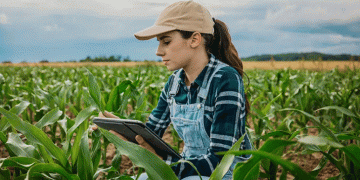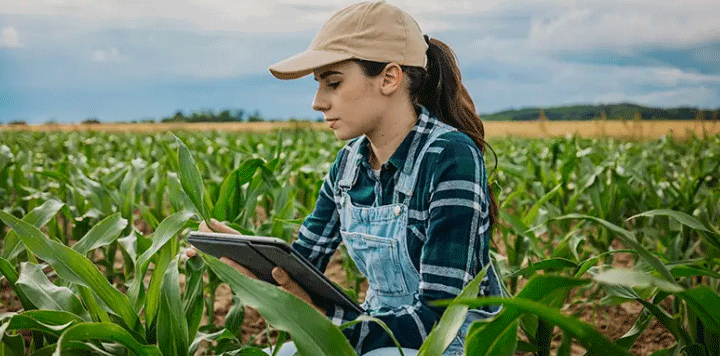Attractive scholarships and better hostel conditions encouraged girls to take up courses in agriculture.
The number of female students enrolling in agriculture-related courses has increased from 27% in 2017 to around 50% in 2023, according to a survey by the Indian Council of Agricultural Research (ICAR), the apex body that regulates 76 agricultural universities (AUs). across India and has 131 agricultural institutes in various fields of agriculture and commodity production.
According to the data, Kerala has the highest enrollment of women in AU with 74% of female students enrolled in agriculture courses due to higher literacy rate in the state, followed by Himachal Pradesh, Tamil Nadu, Telangana, Manipur, Assam and Jammu and Kashmir. , Uttarakhand, Nagaland and Odisha. In 12 states and union territories, the percentage of women enrolled in agriculture courses already exceeds 50%.
Women candidates prefer courses such as Agricultural Engineering, Biotechnology, Food Technology, Veterinary Science, Horticulture and Dairy Technology as observed in the counseling sessions from academic years 2019-20 to 2023-24. The reasons why girls prefer agriculture courses include the promotion of gender equality and women empowerment in agricultural institutes, the desire to contribute to rural women empowerment among girls, and the ability to promote women’s rights in the agricultural sector.
Dormitories and scholarships
Special efforts are also being made to attract female students to agricultural universities. “As many AU and agricultural college campuses are located outside the main cities and towns due to the need for large areas for agricultural land, we have made accommodation facilities for girls,” says R K Agrawal, deputy director general, agricultural education, ICAR. Out of the total 245 hostels, 140 hostels are assigned to girls only. For the last 10 years, ICAR has been giving preference to financial assistance to girls’ hostels. “We used to provide financial assistance to ACs regardless of gender. However, in the last ten years, we have been giving more preference to girls’ hostels to improve their living conditions,” says Agrawal.
In 2018, the Government of India launched a joint project called Indian Council of Agricultural Research-National Agricultural Higher Education Project (ICAR-NAHEP) with the World Bank to attract talent from across India and provide quality and more relevant agricultural education. It aimed to strengthen higher agricultural education on the basis of 50:50 cost sharing. Of the total 5.15 lakh ICAR-NAHEP beneficiaries, the proportion of women participants increased to 44% in 2023 from 28% in 2019. The project has also created convenient campuses for a safe environment for female students. He launched a grievance redressal portal, which has encouraged female students and helped them raise safety issues on campuses without any fear.
Other means to ensure a safe environment for female students include the installation of CCTV in girls’ dorms and campus hallways, tissue vending machines in restrooms, and special efforts to provide internships and placements for female students. In addition, special classes are conducted for academically weak students.
Moreover, female students receive scholarships provided by ICAR, UGC and Department of Science and Technology. “We have a budget of around Rs 90 crore for competitive scholarships. Since these are merit-based scholarships, most of them go to girls,” says Agrawal. This is because girls are much more competitive than boys. enter agricultural institutes, and more capable girls enter institutes due to competitive advantages.
The number of applications received per seat from female students is higher than the number of applications received from male students in various agriculture related courses. For example, in UG courses for the 2022-2023 academic year, 31 girls applied for one place versus 18 boys.
Academic excellence and international recognition
Female students excel academically, winning about 90% of academic medals at agricultural universities in recent years. ICAR-NAHEP has also reserved 33.33% seats for female students in foreign programs. As of March 2024, 42% of the 2,700 students participating in international higher education programs under ICAR-NAHEP were women. These students, from 48 AUs, visited more than 150 agricultural institutions in 20-25 countries, learning about new agricultural technologies and related disciplines.
Career aspirations and results
After graduation, 29% of female students choose to work in the private sector in companies related to food, seeds and agriculture. Approximately 24.3% prepare for competitive government examinations, 22.5% pursue higher education in India and 13.2% go abroad for further education. A remarkable 7% of female graduates start their own businesses, contributing to the growth of women-owned businesses in the agricultural sector.































